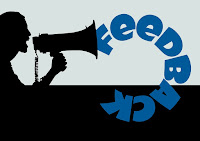 |
| Source |
Prensky has since written other articles that are well worth mentioning. The first is about what technology ISN'T good at. With so much of the education world moving rapidly toward digitization, what role do physical teachers play? As teachers, we must be aware of the weaknesses inherent in whatever delivery medium we're working in at the moment. Prensky says we must come to grips with three questions:
- How do we use the technology wisely?
- How do we find best symbiosis of brain and machine?
- What should we outsource to machines, and what should be reserved for humans and human minds?
He says, "I would propose empathy as the most important element a good teacher offers that technology cannot replace." Empathy goes far beyond content delivery (which machines are often better at) to understand each learner as a unique human individual with strengths, weaknesses, passions, and propensities. At its core, Presky says, empathy means that teachers like students... and want to help them. Would you agree?
In a second post he also identifies "passion" (basically enthusiasm) as something that is irreplaceable by technology. He says,
In a second post he also identifies "passion" (basically enthusiasm) as something that is irreplaceable by technology. He says,
"While teachers think, quite rightly, that their own passion for their subject is important, and hope to inspire their students by showing that passion, a teacher’s goal now must additionally be to bring each student to the material they are teaching through each student’s own passion, whatever it may be."
Prensky argues that a resource like Khan Academy - which has one good lesson for just about every subject out there - should have 100 good lessons for each subject, each approaching the subject from a unique angle or passion. He gives the example of teaching math using music examples and music theory for students passionate about music.
This conversation dovetails quite nicely into Prenky's writing about digital wisdom and knowing how to use technology to its fullest extent. When we use digital technology we're faced with ethical and moral dilemmas as well as more pragmatic problems and questions:
This conversation dovetails quite nicely into Prenky's writing about digital wisdom and knowing how to use technology to its fullest extent. When we use digital technology we're faced with ethical and moral dilemmas as well as more pragmatic problems and questions:
- What should we memorize vs allow a machine to remember for us?
- Should we allow machines like smartphones and wearables to enhance and extend our minds?
- When should we allow digital calendars and to-do lists to plan and prioritize our lives?
Easy answers don't exist. In your lifetime computers moved from room-sized monstrosities to pocketable, wearable supercomptuers. They will continue to take over more and more of our lives and even move into our physical bodies. The answer is not to avoid technology or to demonize it. The only workable solution is to teach and model digital wisdom and digital literacy so that our students will know how to interact wisely with technology for the rest of their lives.
Works Cited:

